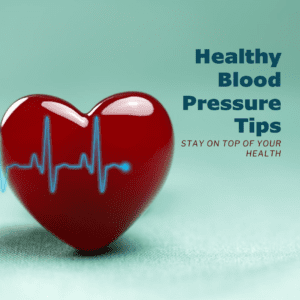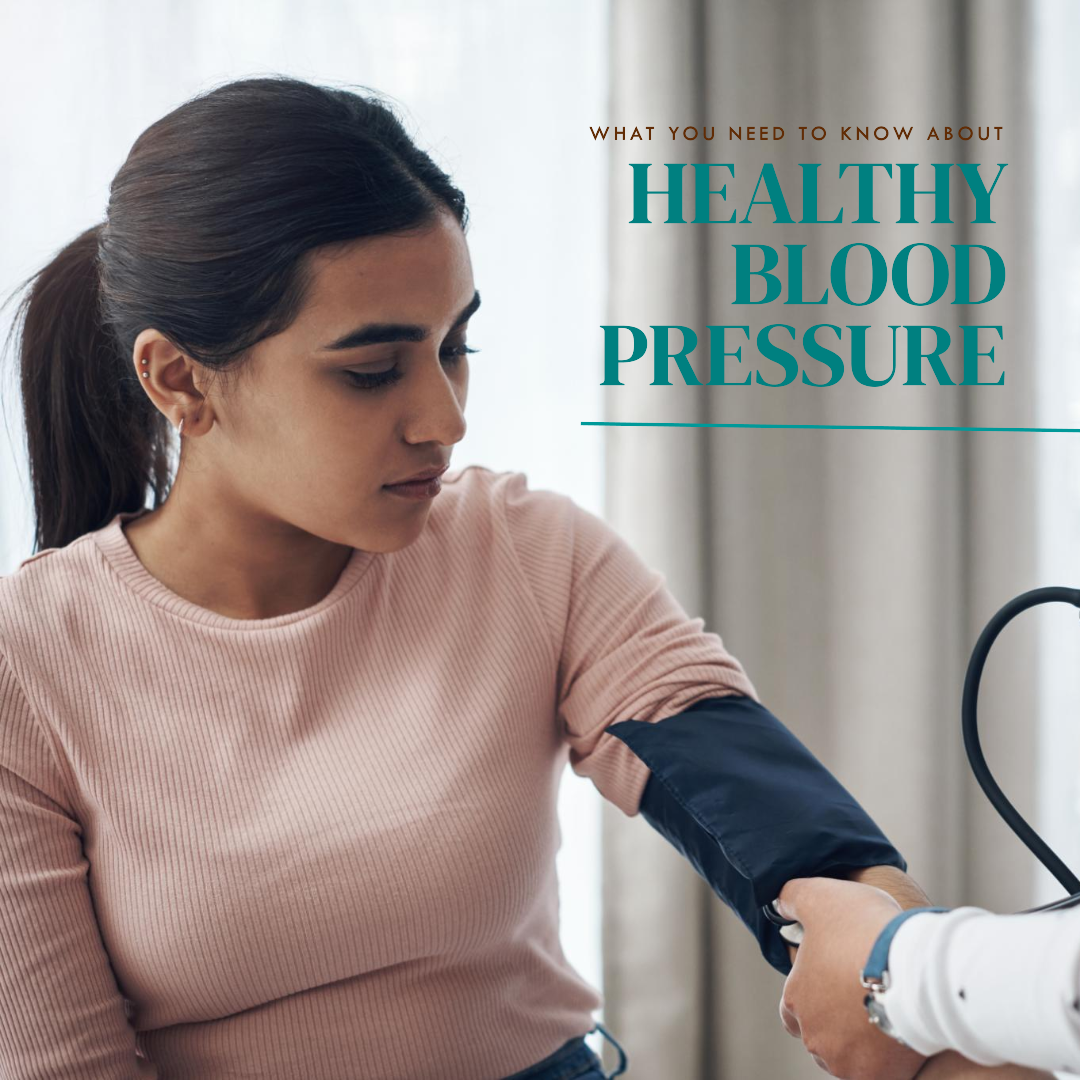High blood pressure, or hypertension, affects millions of men and women of all ages. It causes serious health problems and harms your heart. While having a healthy blood pressure is important for everyone, it’s especially important for women, and it’s never too early to start thinking about keeping it in a healthy range. In fact, about 43% of women ages 20 and older already have high blood pressure. Slightly more women than men die of high blood pressure, and it can also cause complications during and after pregnancy.
Here are some facts, tips, and resources to help you keep your blood pressure in a healthy range.
Know Your Numbers: What’s a Healthy Blood Pressure?
For most adults, a healthy blood pressure is less than 120/80 mm Hg (millimeters of mercury). Blood pressure consistently above 130/80 mm Hg increases your risk for heart disease, kidney disease, eye damage, dementia, and stroke. Your doctor may advise you to lower your blood pressure if it’s between 120/80 mm Hg and 130/80 mm Hg and you’re at risk for heart or blood vessel disease.
The Correct Way to Check Blood Pressure
- 30 minutes before your test, avoid exercising, drinking caffeine, or smoking cigarettes.
- Right before, go to the bathroom.
- During the test, rest your arm on a table at the level of your heart and put your feet flat on the floor. Relax and don’t talk.
Know Your Risks: High Blood Pressure Has Many Causes
Anyone can develop high blood pressure, but some things increase the risk. For women, this includes taking oral birth control, having premenstrual migraines, and having certain health problems during pregnancy. Being overweight or having obesity , having an unhealthy diet, or experiencing high levels of stress also increase blood pressure. Other causes include some health conditions, your genes—high blood pressure runs in families, and, importantly, your race. Research shows that discrimination is a source of chronic stress that may increase the risk of developing high blood pressure.
- Among African American women aged 20 and older, about 58% have high blood pressure. African Americans tend to get high blood pressure earlier in life, and when they do, they often have higher blood pressure numbers. Also, some blood pressure medicines may not work as well for African Americans.
- Among Hispanic/Latina women aged 20 and older, about 35% have high blood pressure. Higher rates of health conditions – such as high blood pressure, obesity, and diabetes – increase the risk of heart disease for Hispanic/Latina women.
Know Yourself: Pay Attention to Your Well-Being
High blood pressure is often called the “silent killer” because people can’t generally feel if they have it. However, you may have warning signs that you’ve been writing off as just stress or symptoms of menopause. These include tiredness, low energy, sleeping problems, hot flashes, fluid retention, headaches, blurred vision, and chest pain (as some women report their “bra feels too tight”). If something doesn’t feel right, don’t tough it out—check it out. Learn what your blood pressure is. Make an appointment with your health care provider or get it measured at one of the blood pressure monitors found in pharmacies or grocery stores. If it’s high, ask your provider what to do to get—and keep—your blood pressure in a healthy range.
Know the Steps: Make a Healthy Blood Pressure To-Do List

Many self-care activities, such as exercising, eating healthy, and taking time to de-stress, help control blood pressure. Here are some tips to help:
- Move More: To help lower or control your blood pressure, aim for 150 minutes (2½ hours) a week of moderate-level physical activity, like brisk walking. You can tell you’re moving enough if your heart is beating faster, you’re breathing harder, and you’re breaking a sweat. Try 5 days a week, 30 minutes a day. You can break that down into chunks of 10 minutes, three times a day. Find what works for you.
- Eat Healthy: Avoid having too much salt (sodium), too little potassium, or too much alcohol. Use herbs for flavor instead of salt. Add at least one fruit or vegetable to every meal. Sample the National Heart, Lung, and Blood Institute’s (NHLBI’s) delicious heart-healthy recipes. Following a heart-healthy eating plan, such as the NHLBI’s Dietary Approaches to Stop Hypertension (DASH), may make it easier to eat right. DASH is scientifically proven to lower high blood pressure.
- Aim for a Healthy Weight: Losing just 3-5% of your weight can improve blood pressure if you’re overweight. If you weigh 200 pounds, that’s 6-10 pounds. To lose weight, ask a friend or family member to join a weight loss program with you. Social support can help keep you motivated.
- Manage Stress: Stress can increase your blood pressure and make your body store more fat. Reduce stress with meditation, relaxing activities, support from a counselor or online group, or another approach that works for you. What do you find relaxing?
- Quit Smoking: Any amount of smoking, even light or occasional smoking, damages your heart and blood vessels. Call 1–800–QUIT–NOW and visit smokefree.gov to learn about different options to help you quit.
Know the Facts: Blood Pressure Control is Vital to a Healthy Pregnancy
It’s important to keep your blood pressure under control before, during, and after pregnancy. One in 12-17 pregnant women have high blood pressure. Blood pressure can increase during pregnancy. Know and monitor your numbers. Ask if your blood pressure is normal and track it during and after pregnancy. If you’re planning to become pregnant, start monitoring it now.
- Keep moving during pregnancy—aim for 30 to 60 minutes two to seven times a week to lower the risk of high blood pressure.
- If you already take high blood pressure medicine, make sure it is still safe to use when pregnant.
- Learn Seven Ways to Support Healthy Blood Pressure in Pregnancy
Learn More for a Healthy Life
Check out more tips to make taking care of your blood pressure part of your self-care routine. Visit hearttruth.gov to learn more about high blood pressure and find resources to help you track your numbers.


